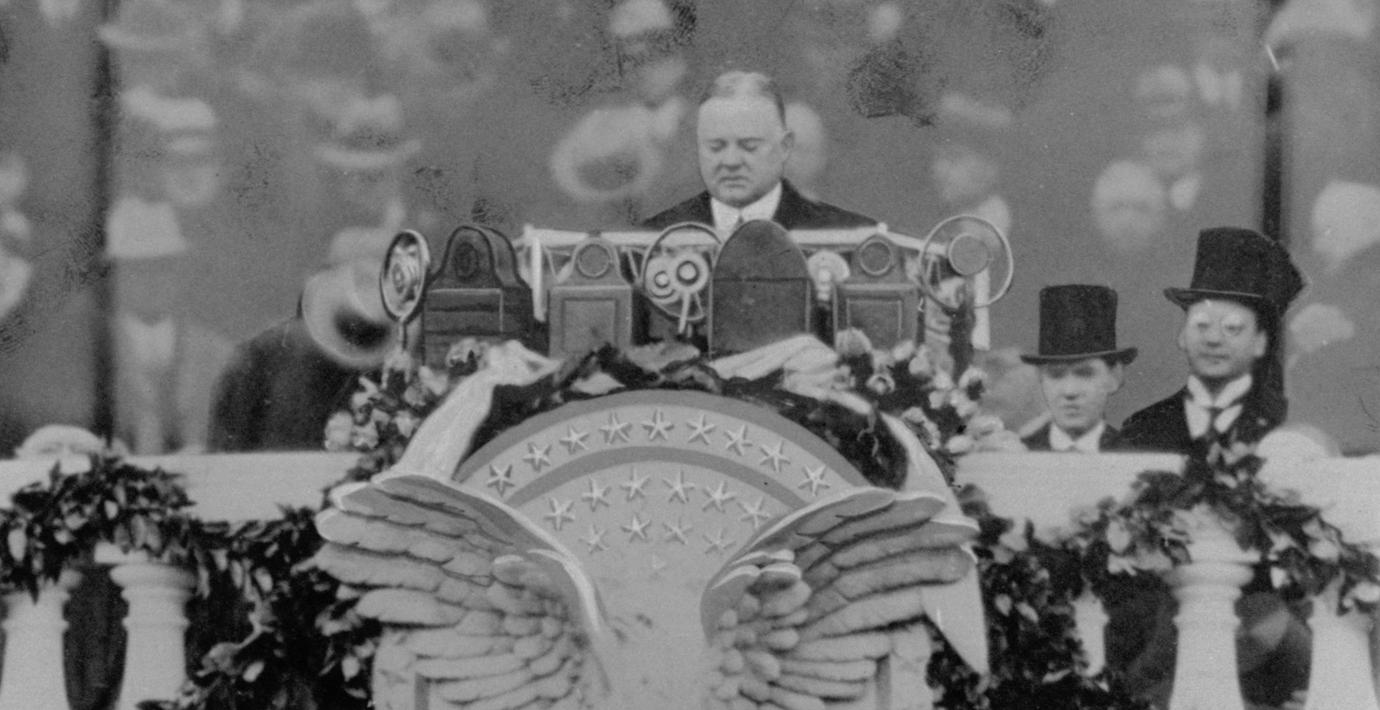
Trumps tullar högsta sedan innan andra världskriget
Donald Trumps handelspolitik har tagit USA:s tullar på utländska varor till de högsta nivåerna sedan innan andra världskriget. Enligt Yaleuniversitetets uträkning ligger de effektiva tullarna nu på 17,3 procent, rapporterar Financial Times.
– Trump har skapat en ny era av amerikansk handelsprotektionism som i förlängningen kommer att påverka hela det globala handelssystemet, säger Eswar Prasad, professor i handelspolitik och ekonomi vid Cornell University.
De sammanlagda tullarna närmar sig nu 20 procent, en nivå som senast sågs under den omfattande vågen av tullhöjningar efter den så kallade Smoot-Hawley-lagen 1930. Den lagen antogs under president Herbert Hoover.
bakgrund
Smoot–Hawley Tariff Act
Wikipedia (en)
The Tariff Act of 1930, also known as the Smoot–Hawley Tariff Act, was a protectionist trade measure signed into law in the United States by President Herbert Hoover on June 17, 1930. Named after its chief congressional sponsors, Senator Reed Smoot and Representative Willis C. Hawley, the act raised tariffs on over 20,000 imported goods in an effort to shield American industries from foreign competition during the onset of the Great Depression, which had started in October 1929.
Hoover signed the bill against the advice of many senior economists, yielding to pressure from his party and business leaders. Intended to bolster domestic employment and manufacturing, the tariffs instead deepened the Depression because the U.S.'s trading partners retaliated with tariffs of their own, leading to U.S. exports and global trade plummeting. Economists and historians widely regard the act as a policy misstep, and it remains a cautionary example of protectionist policy in modern economic debates. It was followed by more liberal trade agreements, such as the Reciprocal Trade Agreements Act of 1934.
bakgrund
Herbert Hoover
Wikipedia (en)
Herbert Clark Hoover (August 10, 1874 – October 20, 1964) was the 31st president of the United States, serving from 1929 to 1933. A wealthy mining engineer before his presidency, Hoover led the wartime Commission for Relief in Belgium and was the director of the U.S. Food Administration, followed by post-war relief of Europe. As a member of the Republican Party, he served as the third United States secretary of commerce from 1921 to 1928 before being elected president in 1928. His presidency was dominated by the Great Depression, and his policies and methods to combat it were seen as lackluster. Amid his unpopularity, he decisively lost reelection to Franklin D. Roosevelt in 1932.
Born to a Quaker family in West Branch, Iowa, Hoover grew up in Oregon. He was one of the first graduates of the new Stanford University in 1895. Hoover took a position with a London-based mining company working in Australia and China. He rapidly became a wealthy mining engineer. In 1914, the outbreak of World War I, he organized and headed the Commission for Relief in Belgium, an international relief organization that provided food to occupied Belgium. When the U.S. entered the war in 1917, President Woodrow Wilson appointed Hoover to lead the Food Administration. He became famous as his country's "food dictator". After the war, Hoover led the American Relief Administration, which provided food to the starving millions in Central and Eastern Europe, especially Russia. Hoover's wartime service made him a favorite of many progressives, and he unsuccessfully sought the Republican nomination in the 1920 U.S. presidential election.
Hoover served as Secretary of Commerce under presidents Warren G. Harding and Calvin Coolidge. Hoover was an unusually active and visible Cabinet member, becoming known as "Secretary of Commerce and Under-Secretary of all other departments." He was influential in the development of air travel and radio. Hoover led the federal response to the Great Mississippi Flood of 1927. He won the Republican nomination in the 1928 presidential election and defeated Democratic candidate Al Smith in a landslide. In 1929, Hoover assumed the presidency. However, during his first year in office, the stock market crashed, signaling the onset of the Great Depression, which dominated Hoover's presidency until its end. He supported the Mexican Repatriation and his response to the Great Depression was widely seen as lackluster.
In the midst of the Great Depression, he was decisively defeated by Democratic nominee Franklin D. Roosevelt in the 1932 presidential election. Hoover's retirement was over 31 years long, one of the longest presidential retirements. He authored numerous works and became increasingly conservative in retirement. He strongly criticized Roosevelt's foreign policy and the New Deal. In the 1940s and 1950s, public opinion of Hoover improved, largely due to his service in various assignments for presidents Harry S. Truman and Dwight D. Eisenhower, including chairing the influential Hoover Commission. Critical assessments of his presidency by historians and political scientists generally rank him as a significantly below-average president, although Hoover has received praise for his actions as a humanitarian and public official.
Omni är politiskt obundna och oberoende. Vi strävar efter att ge fler perspektiv på nyheterna. Har du frågor eller synpunkter kring vår rapportering? Kontakta redaktionen


